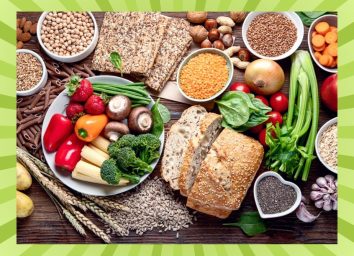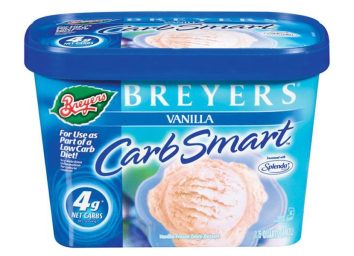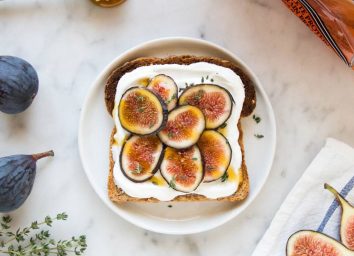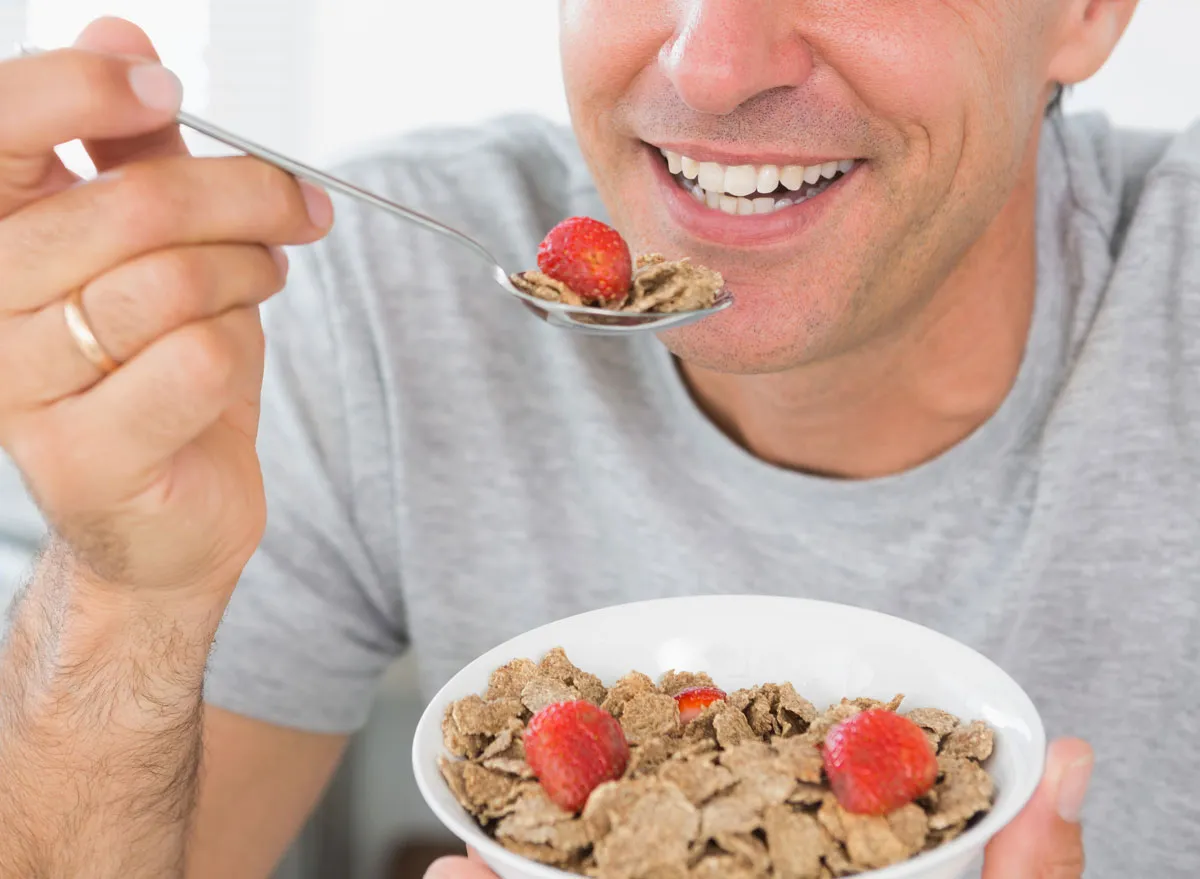
Ten seconds. That's exactly how quickly the stomach begins digesting food after you chew and swallow. Within 45 minutes of eating a meal without fiber, you'll feel the blood sugar roller coaster effects. A high fiber diet is key to preventing these spikes and falls.
"That great, full feeling you experience after a big meal? It's quickly followed by a blood sugar crash, where you feel tired, weak, shaky, cranky, and most of all, hungry," says Tanya Zuckerbrot MS, RD, an NYC-based registered dietitian, who is also the founder of the F-Factor diet and a bestselling author. Sound familiar? Then you're probably not getting enough fiber in your diet.
"When a meal contains fiber, this process is much slower, eliminating blood sugar spikes and increasing feelings of fullness for several hours after eating." A sense of fullness is only one of many benefits of fiber.
What is fiber?
Before we get too far: What actually is fiber? The Institutes of Medicine gave it a formal definition in 2005 and separated total fiber into:
- Dietary fiber: Formally defined as "nondigestible carbohydrates and lignin found in plants," dietary fiber is the zero-calorie, non-digestible part of a carbohydrate that adds bulk to food, according to Zuckerbrot. This is the type of fiber found naturally in fiber-rich foods. Dietary fiber is further broken down into soluble and insoluble fiber.
- Functional fiber: isolated nondigestible carbohydrates. This is the type of fiber that is extracted from natural foods or produced synthetically and only exists in isolation. Functional fiber, also called added fiber, is typically the added fiber you see in many protein bars and cereals under the names inulin, isomalto-oligosaccharides, maltodextrin, and chicory root fiber.
How much fiber do you need per day?
Most of us fall far short of the ideal, consuming only about nine to 11 grams per day. Dietitians recommend 35 grams (for women) to 38 grams (for men) of fiber.
The new FDA nutrition label recommends 28 grams of fiber per day for a 2,000 calorie diet.
What are the benefits of a high fiber diet?
Because a majority of Americans don't get enough fiber, it's worth adding fiber to your diet. Following a high fiber diet has countless health benefits, from weight loss to colon health.
These are the 13 health-promoting benefits of fiber and a high fiber diet.
A High Fiber Diet Helps You (Actually) Feel Full

"Fiber swells in your stomach like a sponge, which increases feelings of fullness and promotes weight loss by creating a caloric deficit without hunger," Zuckerbrot says.
Digestion Is Smoother

Fiber-rich foods, including beans and legumes, berries, whole grains, and nuts, make everything you consume go down easier. "Soluble fiber combines with water to form a gel-like substance that creates bulk. Insoluble fiber moves food through," says Jessica Cording, RD, a dietitian, health coach, and author in New York City. A high fiber diet will promote more regular digestion and less constipation.
You Torch More Calories—Zero Effort Required

That's right: Even without extra gym time, you'll burn more calories (to the tune of 92 extra per day) when you double fiber intake from 12 to 24 grams per day, according to recent research published in the American Journal of Clinical Nutrition. "Fiber boosts metabolism because the body can't digest fiber—but it attempts to—burning calories in the process," Zuckerbrot says. All that bonus burn would result in a 10-pound loss per year.
Cholesterol Goes Down
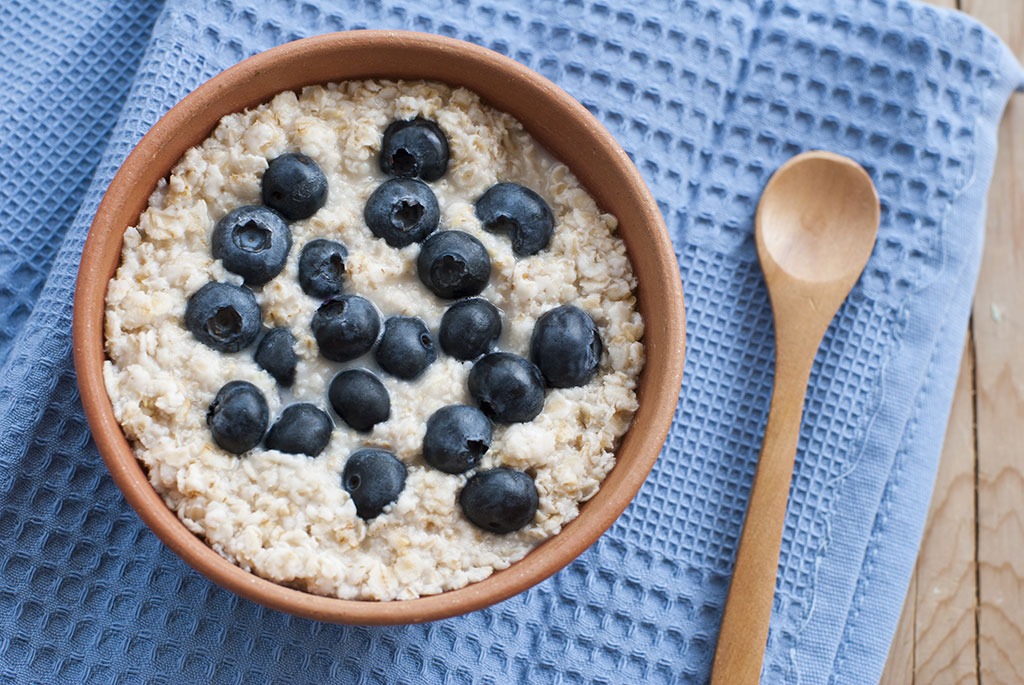
Think of fiber like a sponge. Soluble fiber, specifically, has been linked to lower levels of LDL ("bad") cholesterol. Find it in barley, oat bran, apples, and strawberries. "Fiber has absorbent properties, binding to circulating cholesterol and eliminating it from the body," Zuckerbrot says.
Energy Skyrockets

Step away from the coffee machine. Consume a high fiber diet for an instant power up—without the energy roller coaster—instead. Cording tells her clients to reach for a serving of nuts to combat the mid-morning slump. "Eating fiber and protein together keeps blood glucose levels steady, providing your body with sustained energy throughout the day," Zuckerbrot says.
Your Skin Will Glow

Bye-bye acne and blotchiness! Since fiber soaks up toxins in the blood, eliminating them through the digestive tract instead of your pores will make your skin brighter and clearer, Zuckerbrot explains. She recommends seeking out fiber-rich fruits and vegetables that are also rich in antioxidants that help fight aging, such as artichokes, pears, and broccoli.
Inflammation Decreases

"Fiber is a prebiotic that plays a fundamental role in gut health, and is important for battling inflammation and lowering overall disease risk," Zuckerbrot says. An American Journal of Clinical Nutrition study explains why: Fiber acts as a natural protective armor against C-reactive protein (CRP), a sign of acute inflammation. When this evil CRP is coursing through the blood, you are more likely to develop diabetes or cardiovascular disease down the road.
You'll Sleep Like a Dream

"Eating refined carbs late in the day cause your blood sugar level to peak and then crash during sleep, which is why some people get up in the middle of the night," Zuckerbrot says. On the flip side, eating a fiber-strong supper and bedtime snack can keep your blood sugar on a more even keel so you can catch some undisturbed shut-eye. Just be sure to amp up the fiber intake on an even pace.
"If you're not used to eating a high-fiber diet, gradually increase your intake to give your system time to adjust and avoid abdominal discomfort like gas and bloating," Cording says, symptoms that would surely keep you up at night.
Bloating Goes Bye-bye

That is if you follow the slow and steady ramp-up just recommended (since too much fiber at one meal can lead to even more bloating and cramps). Drink at least three liters of water per day to avoid the aches and unsettled stomach. When you do, "you'll have complete and regular bowel movements," Zuckerbrot says. "One of the benefits of fiber is that it increases stool bulk, which helps prevent constipation and bloating, and can offer relief from irritable bowel syndrome."
You'll Live Longer

It's not just about how you'll look in your swimsuit. "A study conducted by the National Institutes of Health (NIH), found that those who followed a high fiber diet lived longest. Fiber was credited with reducing the risk of death from cardiovascular disease, infectious and respiratory disease and some forms of cancer," Zuckerbrot says.
It Boosts the Good Bacteria in Your Body

Make the most of your kombucha, kimchi and yogurt consumption by pairing it with a healthy serving of fruits, veggies, and whole grains. "Many high-fiber foods are good sources of prebiotic bacteria, which serves as "food" for beneficial probiotic bacteria," Cording says.
Blood Sugar Stays Steadier
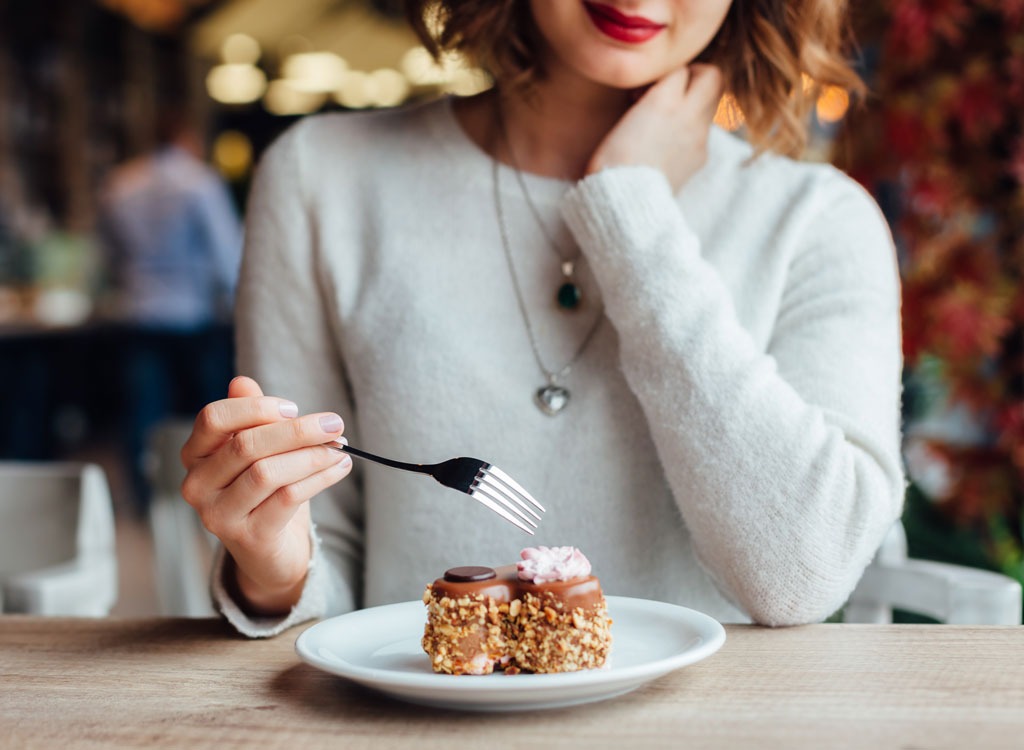
Think of fiber as a slow-mo button for blood sugar spikes. "Foods with fiber take longer to digest, therefore blood sugar doesn't rise and fall dramatically like it does with refined carbohydrates. Fiber slows digestion and steadies blood sugar levels, which curbs sugar cravings and sustains energy," Zuckerbrot says. When you're indulging in something lower-fiber, such as pancakes, try tossing in a handful of sliced pears (5 1/2 grams in a medium) or a medium sliced banana (three grams).
Hypertension Dangers Go Down

Take heart: "By improving cholesterol levels and decreasing inflammation, fiber can help to reduce heart disease risk and decrease blood pressure levels," Zuckerbrot says.
Cancer Risk Is Slashed, Too

The secret weapon to combat certain cancers? You guessed it: a high fiber diet. Your colon, breasts and other body parts will stay disease-free longer when you add more fiber to your menu. "Fiber is like sandpaper in the colon, causing constant cell turnover which is beneficial for not only digestion but also colon health in preventing tumor growth. Fiber also helps reduce levels of circulating estrogen, which has been proven to reduce the risk of breast cancer," Zuckerbrot says.
You'll Be More Regular

"Fiber alleviates constipation and promotes regularity," Zuckerbrot says, which in turn "promotes regularity and improves symptoms of irritable bowel syndrome and constipation." Fiber-rich foods and supplements help form stool bulk (especially when combined with water), Cording adds. Instead of opting for refined breading on your chicken or fish, coat them in crushed wheat bran or oats to keep things moving and reap the benefits of fiber.
